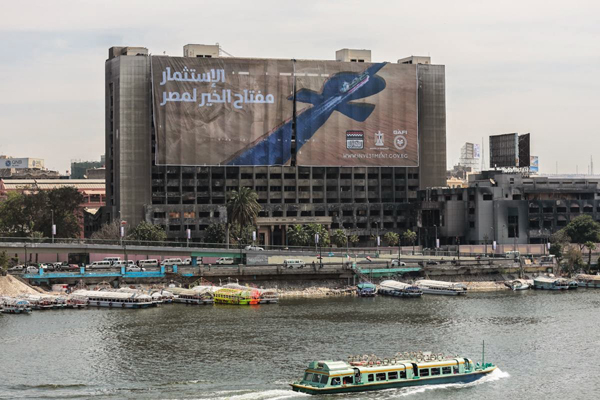by Ahmed El-Mahdi: Industry improved in the second year following the 30 June Revolution, but with the US dollar crisis hampering the production process and tension in neighbouring markets affecting exports, businessmen are calling for the creation of a more favourable investment environment.
At the beginning of the third year since the 30 June Revolution, and after a year of recovery for the Egyptian economy, a number of businessmen have commented on the relative improvement in national industry compared with the position of factories prior to the revolution.
They suggest that this is due to the general state of security and to certain recent decisions. They add, however, that the industrial and investment sectors are in dire need of improvement in and that the entire the investment environment should be reformed, both in the banking and taxation systems, particularly when the Central Bank of Egypt (CBE) has taken a number of measures that impede the production and investment processes.
The position of industry is currently better than it was before the 30 June Revolution, but it is still not good as expected and the industrial community hoped, except that a return to national security has reflected positively on the transport of production materials to the factories, and products from the factories to the marketplace, according to the head of Badr City Investors Association Dr Bahaa al-Adli.
Adli referred to a number of obstacles still hampering the industrial growth factories were hoping for. He believes the shortage of hard currency is one of the main impediments, with the inability of banks to provide dollars making it difficult to import raw materials. He adds that production needs should be made clear to the General Authority for Exports, Imports and Control.
This hard currency shortage has caused slow movement in production, which contradicts the nature of the current requirement for increased production capacity. Adli points to the absence of supervision of local markets, which has helped increase the smuggling of commodities and placed the local products against unfair competition that negatively affects production.
This is unfortunate for the industrial sector, Adli says, in that the sector is still governed by the current labour law as the government has not yet finalised the new bill. He adds that there are still complications over the issuance and allocation of licenses, and explains that this is divided between the Industrial Development Authority, which makes allocations, and the authorities of the new cities, which carry out the executive steps. All this is a huge obstacle facing industrialists who wish to pump in new investments.
Industrial Investors Syndicate head Muhammad Genedi says the status of industry is still unchanged. For instance, there are no expansions of standing investments and the total value of exports is decreasing owing to instability in the markets in neighbouring states, such as Libya, Syria and Iraq, which has led to market losses for many exports.
Costs of shipping from China to Alexandria have decreased from US$2,500 to US$400 per container, which indicates market stagnation in various parts of the world, Genedi says. He adds that this puts pressure on the local market and forces factories to focus for revival on local market sales.
He adds that the policies of the CBE are catastrophic for the industrial and investment sectors and cites recent decisions, including determining the daily deposit and withdrawal operations, the last of which was the cancellation of the suppliers’ bond which obstructs production movement in factories. This should be modified in the coming term, he said.
The investment system in the industrial sector needs reform, including taxes, customs, banking and financial policies as well as facilitating the procedures for issuing licenses and drawing up an industrial map for sectors which the State needs in the near future, he adds.
Meanwhile Muhammad al-Bahei, who heads the Taxes Committee at the Federation of Egyptian Industries, said industry had witnessed a number of incentives during the first year of the 30 June Revolution, mainly the law on preferring local products which will increase production after local products realise the opportunity to meet the needs of the various ministries that have resorted to imports, taking prices into account.
Bahei said that besides the advantages provided by the new investment law, and despite the delay in releasing the executive charter, yet a number of crises faced by investors are expected to be solved. He referred to the intertwined specialisations among government bodies. The new law was intent on applying the ‘one stop shop’ system, he said.
The committees on settling disputes were activated during this period, and this would reflect positively on the economy in general, he said, pointing to the positive effects of the recent Egypt Economic Development Conference on improving the image among world investors and the agreements reached during the event.
The conference sent a reassurance message to all foreign capitals, he said, adding that the visible improvement in the national roads network would reflect positively on the transfer of commodities and raw materials from harbours to factories.
The industrial community is awaiting the issuance of an added value bill that is fair to the various industrial sectors, and the issuance of a republican decree on the maximum limit of taxes, which should not exceed 22.5 per cent. This would help lure huge investments, he said.


